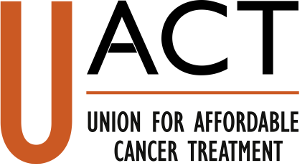The Union for Affordable Cancer Treatment is asking Sherry Lansing, the former Paramount CEO and current member of the Board of Regents of the University of California, to stop the Regents’ efforts to obtain a patent on the prostate cancer drug enzalutamide (brand name Xtandi) in India.

On May 24th, 2017, UACT was joined by 56 civil society organizations and academic experts in sending a letter to Janet Napolitano, President of the University of California system, and the Board of Regents of the University of California, requesting that they withdraw their efforts to obtain a patent on enzalutamide in India. Neither Napolitano’s office nor the Board of Regents responded to this letter, and UACT has now reached out to Sherry Lansing, who sits on the Regents Board, with a request that she bring this to the Board’s attention.
Sherry Lansing is the Chair of the Regents Health Committee, and is a well known advocate for cancer awareness and research. Lansing sits on the boards of numerous charities dedicated to this work. She also co-founded Stand Up To Cancer and is the CEO of her own foundation, the Sherry Lansing Foundation, which is partly dedicated to cancer research.
The University of California already pursued a patent on enzalutamide in India, which was rejected by the Indian patent office in November of 2016 on the grounds of “lack of inventive step, lack of novelty, and lack of clarity and sufficiency”. The University did not file an appeal through the Intellectual Property Appellate Board as per usual practice, but in May of 2017 challenged the rejection before the Delhi High Court in hopes of getting the patent reviewed again.
India’s role as a supplier of generic medications around the world means that a patent on enzalutamide would have international implications. While the University of California owns the patent, they have provided worldwide exclusive marketing rights to the Japanese pharmaceutical corporation Astellas. The high price which Astellas has charged for Xtandi around the world has drawn criticism from civil society, patient advocacy groups, and lawmakers.
Among the co-signers of UACT’s letter to Lansing are Corporación Innovarte, and the Fundación de Pacientes Un Nuevo Renacer, two NGOs based in Santiago, Chile. Because of the high price of Xtandi in Chile, these Chilean NGOs are working on behalf of patients to pursue a compulsory license for enzalutamide. The Chilean government is looking for assurances that there will be a supply source for a generic version of the cancer drug prior to the issuance of a license.
Willy Pino Cataldo, one of the patients in Chile who was working on obtaining the compulsory license, died in July before he could access the medication.
The Regents Health Committee will be meeting on August 16th. Both UACT’s original and follow-up letters have been sent to the Secretary of the Board of Regents for distribution to all committee members in advance of this meeting.
A copy of the letter to Lansing is available here.
